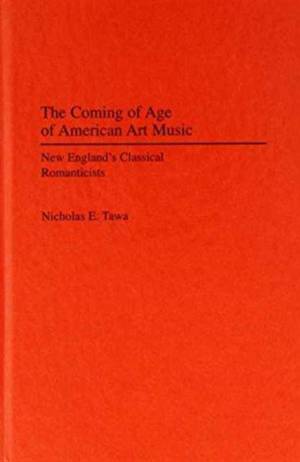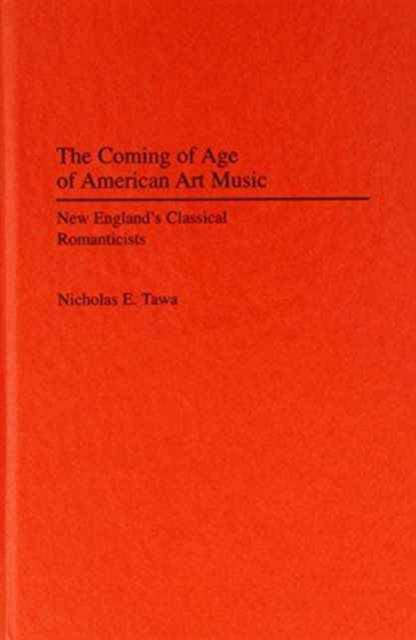
- Retrait gratuit dans votre magasin Club
- 7.000.000 titres dans notre catalogue
- Payer en toute sécurité
- Toujours un magasin près de chez vous
- Retrait gratuit dans votre magasin Club
- 7.000.000 titres dans notre catalogue
- Payer en toute sécurité
- Toujours un magasin près de chez vous
Description
In the years following the Civil War, a tradition of American art music arose that has now come to be neglected and almost ignored. This work studies that period of music that preceded Copland, Sessions, and Thomson by focusing on a number of its important composers, as well as the society that produced them. John Knowles Paine, George Chadwick, Edward MacDowell, Horatio Parker, Arthur Foote, and Amy Beach all achieved national and international reputations for the high quality of their compositions, which included songs, keyboard pieces, chamber works, oratorios, concertos, symphonies, and operas. But with the great changes of the 1920s, music critics and historians either flatly dismissed these artists as mediocre or completely ignored them.
Author Nicholas Tawa fully details the world of these undervalued composers, offering a portrait of American cultural life during the latter part of the nineteenth century, the place of art composers within their society and the nature of the music created in response to the mandates of the time. The book begins with the chapters that explore post-Civil War society and music's relationship to it. Among the topics discussed are the nature of the musical public, American promoters of native music, performance of American art music, and artistic frames of reference. Tawa then devotes a series of chapters to the composers themselves, considering the styles and principal features of each one's work, specific groups of compositions, and what artistry meant to the composers. The study concludes with an evaluation of the composers and their musical legacy and features an appendix of musical examples. Students in American music and American studies courses will find this work to be a useful resource, and public and academic libraries will consider it a valuable addition to their collections.
Spécifications
Parties prenantes
- Auteur(s) :
- Editeur:
Contenu
- Nombre de pages :
- 248
- Langue:
- Anglais
- Collection :
- Tome:
- n° 22
Caractéristiques
- EAN:
- 9780313277979
- Date de parution :
- 09-04-91
- Format:
- Livre relié
- Format numérique:
- Genaaid
- Dimensions :
- 156 mm x 235 mm
- Poids :
- 589 g







